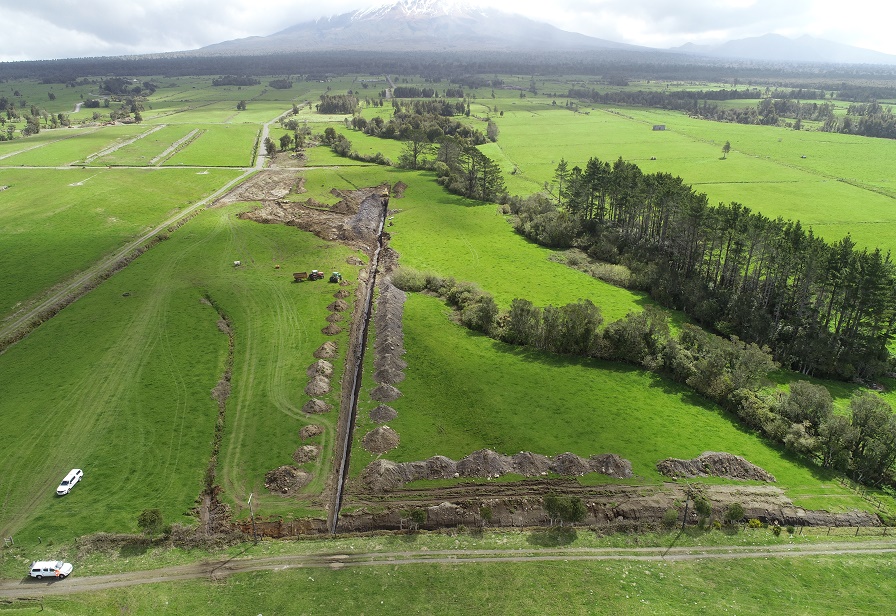The vast majority of Taranaki farmers follow the rules and want to do the right thing when it comes to the environment.

That’s according to Taranaki Regional Council Director-Resource Management Fred McLay, who says the actions of one should not detract from the thousands of landowners who support Council programmes and work hard to protect and enhance the land, waterways and biodiversity on their properties.
In the New Plymouth District Court today Colin David Boyd was ordered to pay a total of $95,750, after he previously admitted carrying out illegal earthworks on his Surrey Rd, Inglewood farm. That comprised a fine of $78,750 for three charges of discharge of sediment and reclamation and $17,000 for not complying with an abatement notice plus an enforcement order issued.
It’s the third time Mr Boyd has been convicted of offences under the Resource Management Act 1991 (RMA).
Between October and November 2019, he carried out a significant amount of earthworks in and around a tributary of the Mangatengehu Stream.
He constructed a diversion channel, reclaiming a 278m section of the stream. The majority of the riparian vegetation had been removed and around 160m of the stream had been drained. Significant scour and erosion occurred, with silt and sediment flowing into the stream and impacting water supplies.
This had a noticeable impact on the stream’s freshwater biology, with a significant decline in nearby species diversity and population.
Mr McLay says today’s fine reflects the seriousness of the offending.
“It reiterates this kind of illegal activity will not be tolerated by the Council or the courts and those who let the side down will be held accountable.
“It is worth noting that a breach of this magnitude is an exception and doesn’t reflect the generally high level of compliance among Taranaki farmers.”
But with implementation of the Government’s Essential Freshwater regulations well under way and the RMA set for major reform, Mr McLay says it’s a timely reminder for anyone planning works on their farms.
“We understand it’s a challenging time as farmers get their heads around the changing requirements. The Council is working closely with the rural community to get them the information they need and ensure we’re all on the same page.
“In the meantime the message is simple – if in doubt, check. If you’re not sure what you can and can’t do, please get in touch with the Council. We’d much rather help you get it right, than have to take enforcement action later.”